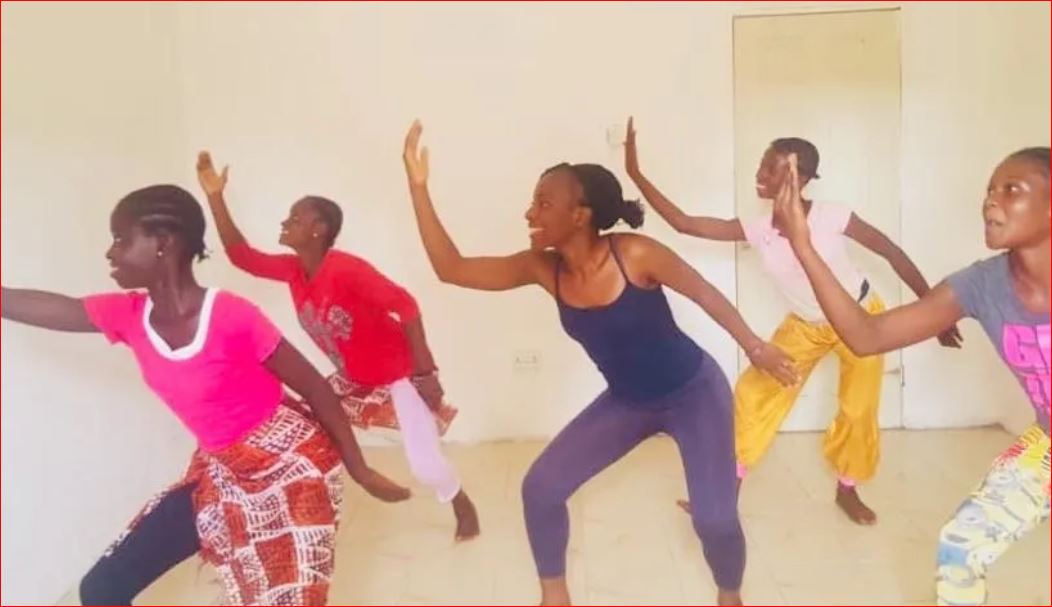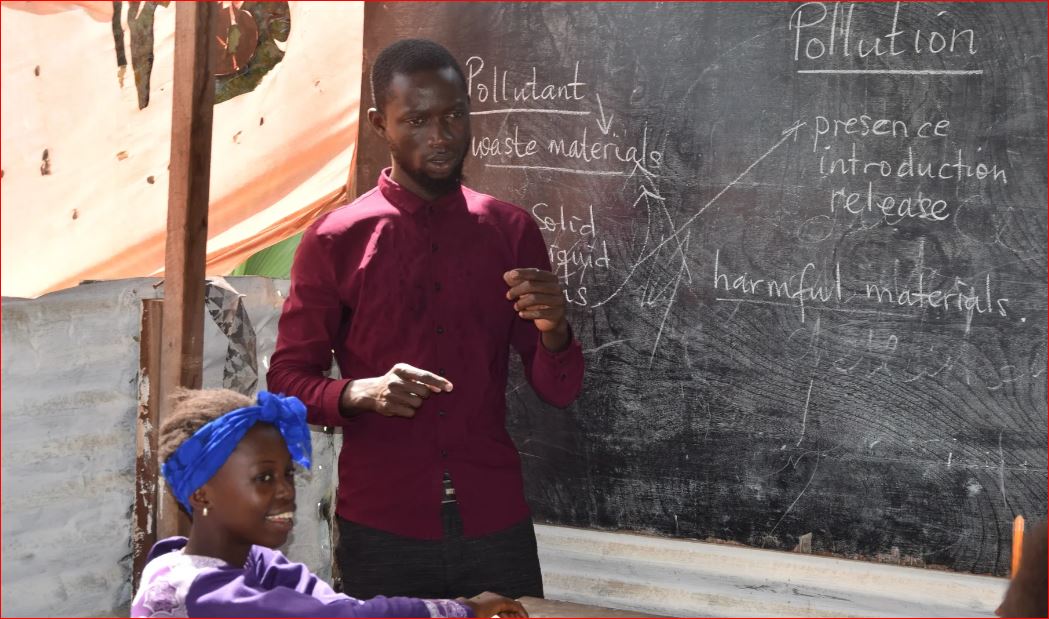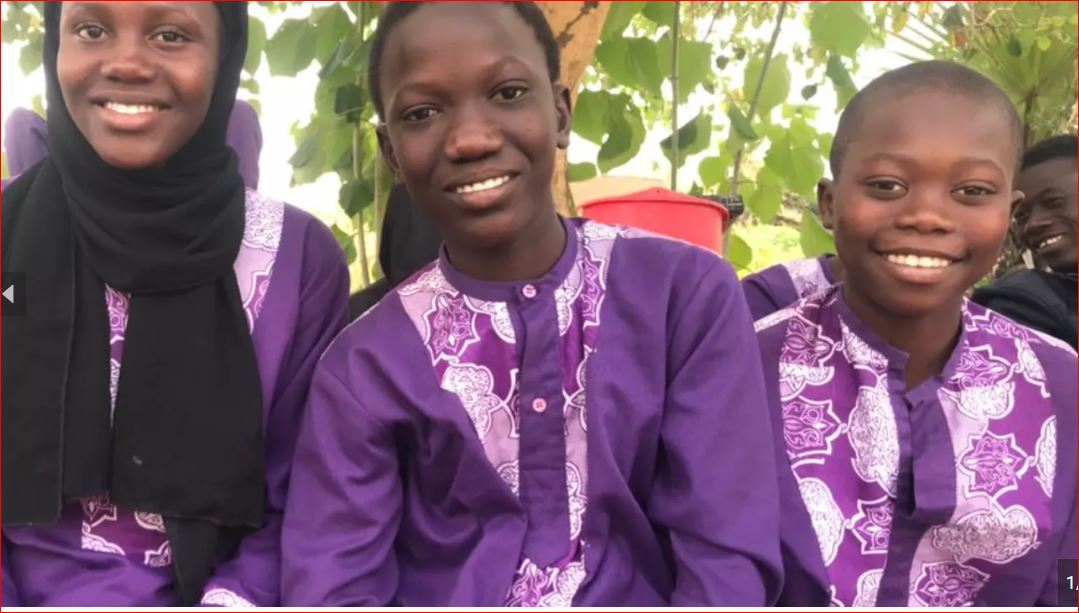- Home
- Process Worldview
- Community
- Art and Music
- Whitehead and Process Thinking
- Podcasts
- Spirituality
- Ecological Civilization
- Education
- Contact
- Social Justice
- Science
- Animals
- Sacred Poems
- Whitehead Videos
- Index of All Titles
- Practicing Process Thought
- Process Spirituality: A Spiritual Alphabet
- Recent Posts
Process Thought and
the Gambia Academy
The process movement is an international movement with people from many parts of the world. Its participants include Christians, Muslims, Jews, Buddhists, Hindus and spiritual independents. It might be better named a Living Earth movement. It sees the universe itself as filled with life, and it takes the flourishing of life as the purpose of life. It has four aims: to help individuals of all ages become whole, to develop communities worldwide where people thrive, to nurture a planet that supports diverse forms of life, and to promote holistic thinking conducive to such a world. We in the process movement refer to these as "the four hopes."
Africa is a continent ripe for the flourishing of these hopes, and a key aspect of this endeavor involves developing holistic educational systems. These systems are designed for children and others, fostering environments where post-colonial attitudes and lifestyles can thrive and dreams are nurtured.
The Gambian Academy exemplifies this approach to education. Established in 2015 by the renowned musician, educator, and activist Sona Jobarteh, its mission is to pave the way for a new generation of institutions across Africa. These institutions are dedicated to educational reform that critically challenges and rejects established frameworks, which, in Jobarteh's view, marginalize, undermine, victimize, and disempower young Africans from an early age. Jobarteh believes that reforming education is crucial to the broader mission of achieving true sustainable development across the continent.
A unique and vital feature of the Academy is its integration of the arts and sciences, blending practical wisdom with vision in a manner that is distinctively and decisively African. It focuses on "the holistic growth and development of each child, incorporating entrepreneurship, leadership, nutrition, health, and vocational training into the fabric of an academic curriculum centered around African values, culture, and history." In this regard, it represents a post-colonial approach in the deepest and most creative sense.
The purpose of this page is to encourage readers around the world to learn from The Gambia Academy; donate to it, if they wish; and, along the way, enjoy the music and vision of Sona Jobarteh. Click here for its webpage.
- Jay McDaniel
Africa is a continent ripe for the flourishing of these hopes, and a key aspect of this endeavor involves developing holistic educational systems. These systems are designed for children and others, fostering environments where post-colonial attitudes and lifestyles can thrive and dreams are nurtured.
The Gambian Academy exemplifies this approach to education. Established in 2015 by the renowned musician, educator, and activist Sona Jobarteh, its mission is to pave the way for a new generation of institutions across Africa. These institutions are dedicated to educational reform that critically challenges and rejects established frameworks, which, in Jobarteh's view, marginalize, undermine, victimize, and disempower young Africans from an early age. Jobarteh believes that reforming education is crucial to the broader mission of achieving true sustainable development across the continent.
A unique and vital feature of the Academy is its integration of the arts and sciences, blending practical wisdom with vision in a manner that is distinctively and decisively African. It focuses on "the holistic growth and development of each child, incorporating entrepreneurship, leadership, nutrition, health, and vocational training into the fabric of an academic curriculum centered around African values, culture, and history." In this regard, it represents a post-colonial approach in the deepest and most creative sense.
The purpose of this page is to encourage readers around the world to learn from The Gambia Academy; donate to it, if they wish; and, along the way, enjoy the music and vision of Sona Jobarteh. Click here for its webpage.
- Jay McDaniel
From The Gambia Academy Website
"The Gambia Academy was set up in 2015 by the renowned musician, educator and activist Sona Jobarteh in order to pave the way for a new generation of institutions across Africa, dedicated to a process of educational reform which critically challenges and rejects well established educational frameworks which she believes marginalise, undermine, victimise and disempower young Africans from a formative age. It is Jobarteh's conviction that by reforming education we are directly addressing the bigger mission of working towards true sustainable development across the continent.
The Gambia Academy is dedicated first and foremost on re-orientating curriculum, and to critically assess what best serves young africans in order to equip them with the knowledge, passion and tools they need to succeed as proactive change-makers, entrepreneurs, role models, as well as a highly skilled workforce. Jobarteh has developed and is expanding a curriculum that uniquely supports the holistic growth and development of each child, incorporating entrepreneurship, leadership, nutrition, health and vocational training into the very fabric of an academic curriculum which is centred around African values, culture and history. This approach, says Jobarteh, will create a generation of Africans who will be innately proud of their culture, confident with who they are as Africans, and proactive contributors to the growth and sustainable development of the continent."
The Gambia Academy is dedicated first and foremost on re-orientating curriculum, and to critically assess what best serves young africans in order to equip them with the knowledge, passion and tools they need to succeed as proactive change-makers, entrepreneurs, role models, as well as a highly skilled workforce. Jobarteh has developed and is expanding a curriculum that uniquely supports the holistic growth and development of each child, incorporating entrepreneurship, leadership, nutrition, health and vocational training into the very fabric of an academic curriculum which is centred around African values, culture and history. This approach, says Jobarteh, will create a generation of Africans who will be innately proud of their culture, confident with who they are as Africans, and proactive contributors to the growth and sustainable development of the continent."
Ecological Civilization: Gambian Style
The phrase "Ecological Civilization" naturally invites the idea of living in harmony with the more than human world. Given this understanding, there is a good bit of ecological restoration in Gambia today. The NEMA-CHOSSO project has revitalized over three hectares of mangroves in Bondali-Tenda, benefiting both the environment and local livelihoods. UN Environment leads a large-scale restoration initiative, focusing on degraded forests, farmland, and coastal zones. By integrating agro-ecological practices and eco-restoration, The Gambia’s Agro-ecology and Eco-restoration Project, funded by the European Union, promotes sustainable growth and resilience. These endeavors exemplify the country’s commitment to harmonizing nature, community well-being, and climate adaptation—a vision aligned with ecological civilizations.
An Ecological Civilization is about more than harmony with the natural world. It is about people living together in local communities, taking care of each other, and flourishing, building upon their traditions while being open to new possibilities, free from colonial trappings of the past, as is needed in Africa and many other nations today.
The fundamental units of such civilizations are local communities embodying a spirit of creativity, compassion, and justice, while living in harmony with the more than human world.
If this idea is to take root, it must be more than a slogan people espouse among like-minded friends. It can only take root, and be concretized, through the hearts and minds of people who work in local settings to help build communities, providing resources for people young and old. Sona Jobarteh's humanitarian work, through the Gambia Academy, exemplifies that concreteness. She is living the dream.
- Jay McDaniel
About Sona Jobarteh
Sona Jobarteh, born in 1983, is a Gambian multi-instrumentalist, singer, and composer. She hails from one of the five principal kora-playing griot families of West Africa, and she holds the distinction of being the first female professional kora player from a griot family. The kora is a traditional West African string instrument with a rich cultural heritage that dates back centuries. Sona’s groundbreaking work has shattered gender norms within this ancient, male-dominated hereditary tradition, which had previously been exclusively passed down from father to son for over seven centuries.
Her musical journey is a fusion of preserving her cultural roots and creating an accessible, modern style that resonates with audiences worldwide. Sona’s virtuosity on the kora bridges tradition and contemporary expression. Beyond her musical prowess, she is also a dedicated humanitarian activist. She founded The Gambia Academy, an institution committed to educational reform for young Africans on the continent. Her impact extends beyond the stage, as she delivers speeches on educational reform, gender, and entrepreneurship at high-profile events, including summits for the UN and the World Trade Organization.
Sona Jobarteh’s music is a harmonious blend of tradition and innovation, reflecting her commitment to both cultural heritage and global connectivity. Her recent album, “badinyaa kumoo,” has garnered acclaim, and she was honored with an honorary Doctorate Degree in Music alongside Usher and Roberta Flack. Sona’s unique life, musicianship, and her academy in The Gambia have been featured on the renowned US news program 60 Minutes.
To experience her captivating artistry, you can explore her music videos, such as “Gambia”, “Jarabi”, and her mesmerizing live performance in “Kora Music from West Africa”. Sona Jobarteh’s legacy continues to inspire and resonate across borders, celebrating the richness of West African culture and pushing artistic boundaries.
- CoPilot AI





